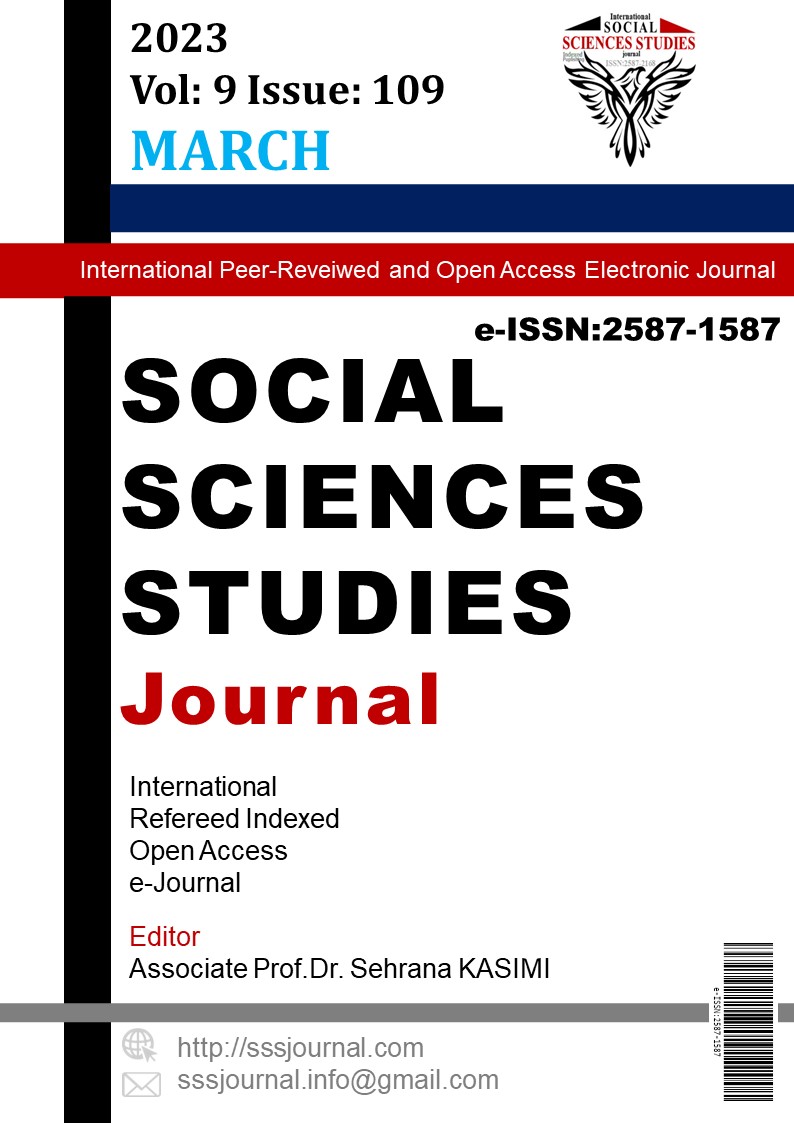Okul Öncesi Öğretmenlerinin Görüşlerine Göre Okul Müdürlerinin Güçlendirici Liderlik Yeterliklerinin Belirlenmesi
Author :
Abstract
Bu araştırma okul öncesi öğretmenlerinin okul müdürlerinin güçlendirici liderlik yeterliliklerine yönelik algılarının incelenmesi ve farklı demografik değişkenlere göre öğretmen algılarında anlamlı farklılaşma olup olmadığını belirlemek amacı ile gerçekleştirilmiştir. Çalışmanın evreni 2022-2023 eğitim öğretim yılında Ankara ili Çankaya ilçesinde bulunan resmi okul öncesi eğitim kurumlarında görev yapan öğretmenlerden, örneklemi ise kolay erişilebilir örnekleme yolu ile belirlenen 205 okul öncesi öğretmeninden meydana gelmektedir. Araştırmada veri toplama aracı olarak demografik verilerin alınması için oluşturulan kişisel bilgiler formu ve suretiyle Konczak, Stelly ve Trusty (2000) tarafından geliştirilen ve Konan ve Çelik (2018) tarafından Türkçe’ ye uyarlanmış olan “Güçlendirici Liderlik Ölçeği” gerekli izinler alınarak kullanılmıştır. Ölçek yetki verme, sorumluluk ve destekleme olmak üzeri 3 faktör ve 17 maddeden oluşmaktadır. Araştırmaya gönüllü olarak katılan okul öncesi öğretmenlerinden yüz yüze ve çevrimiçi araçlar ile toplanan veriler nicel analize uygun hale getirilmiş analizlere ilişkin gerekli varsayımlar kontrol edilerek analizler gerçekleştirilmiştir. Çalışmada öğretmen algılarına göre okul öncesi eğitim kurumu müdürlerinin güçlendirici liderlik yeterliliklerinin yüksek olduğu bulgusu elde edilmiştir. Ayrıca güçlendirici liderliğin alt boyutlarında öğretmen algı düzeylerinin en yüksekten başlamak üzere sırası ile sorumluluk, yetki verme ve destekle faktörlerinde olduğu görülmüştür. Araştırmaya katılan öğretmenlere göre cinsiyet ve öğrenim durumu değişkenlerine bağlı olarak okul müdürlerinin güçlendirici liderlik yeterliliklerinde anlamlı bir farklılaşma görülmezken yalnızca yetki verme alt boyutunda anlamlı farklılaşma olduğu bulgusuna ulaşılmıştır. Mesleki kıdem ve yaş değişkenleri bağlamında öğretmenlerin okul müdürlerinin güçlendirici liderlik yeterliliklerinde daha fazla mesleki kıdeme ve daha yaşlı öğretmenler lehine anlamlı farklılaşma bulunduğu bulgusu elde edilmiştir. Araştırmaya katılan okul öncesi öğretmenlerine göre okul müdürlerinin güçlendirici liderlik yeterlilikleri öğretmenlerin medeni durum değişkenine bağlı anlamlı farklılaşma bulunmadığı görülmüştür.
Keywords
Abstract
This research aimed to investigate the perceptions of preschool teachers regarding the empowering leadership competencies of school principals and whether there were any significant differences in teacher perceptions according to different demographic variables. The study's population was comprised of preschool teachers working in official preschool education institutions in the Çankaya district of Ankara province in the 2022-2023 academic year, and the sample included 205 preschool teachers selected using easily accessible sampling methods. The study used the "Empowering Leadership Scale," which was developed by Konczak, Stelly, and Trusty in 2000 and adapted to Turkish by Konan and Çelik in 2018. The scale consisted of three factors and 17 items measuring empowerment, responsibility, and support. A personal information form was also used to collect demographic data.Data were collected from preschool teachers who voluntarily participated in the research through face-to-face and online tools. Quantitative analysis was conducted after controlling the necessary assumptions regarding the analyses. Results showed that according to teacher perceptions, the empowering leadership competencies of preschool education institution principals were high. Teacher perception levels were found to be highest in the responsibility factor, followed by empowerment and support. The study found that there was no significant difference in the empowering leadership competencies of school principals depending on gender and educational status. However, a significant difference was found only in the sub-dimension of empowerment. It was also found that there was a significant difference in the empowering leadership competencies of school principals based on professional seniority and age, favoring more experienced and older teachers. The study found no significant difference in school principals' empowering leadership competencies based on marital status, according to the preschool teachers who participated in the research.





